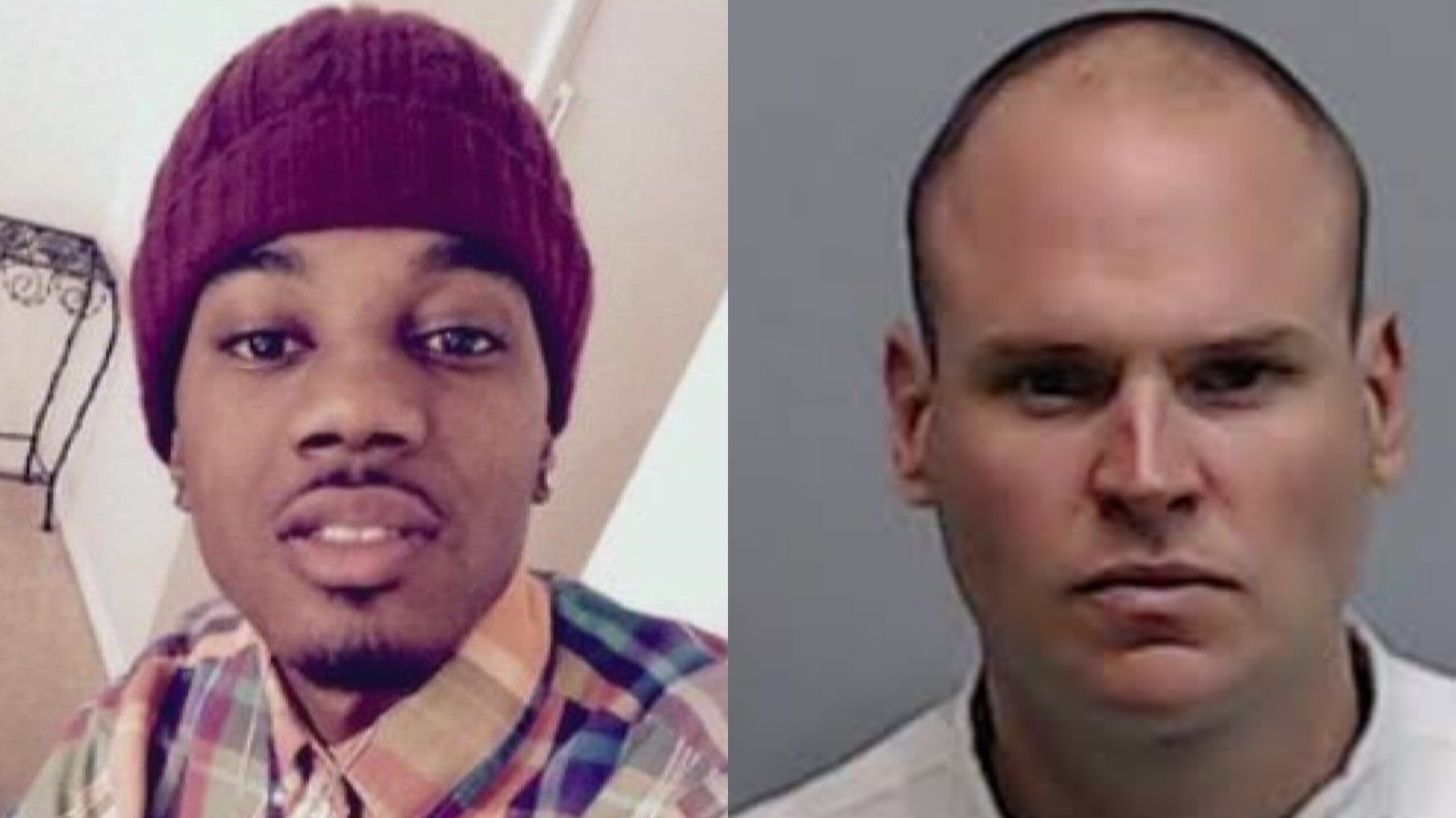The murder case against a former Atlanta Police officer is now slowly moving forward after the Georgia Supreme Court resolved a longstanding issue in the case earlier this year.
James Burns is charged with murder in the 2016 police shooting of 22-year-old Caine Rogers, and whether the indictment should be thrown out was long the subject of legal proceedings.
The Georgia Supreme Court ruled against Burns in March, rejecting arguments by his attorneys that he should be subject to legal procedures under old rules after changes to Georgia law in 2016 removed certain privileges for public officials in grand jury proceedings.
Lawyers for Burns were before Fulton County Judge Belinda E. Edwards on Tuesday, as the court worked to arrange the next steps in the case.
His attorney, Marissa Goldberg, noted that “it’s been quite a while, probably almost four years, since we’ve had hearings on this matter,” as she explained how the defense team will prepare motions going forward.
The assistant district attorney in court Tuesday on the case, Adam Abbate, added that “both sides are just coming back to get to know the case” and requested a next hearing for January.
The defense team agreed with that timetable, and Judge Edwards set a date for Jan. 27, 2023 for a motions hearing.
In the 2016 incident, Burns was responding as backup to a call of a suspicious person, possibly breaking into cars, at an apartment complex off of Monroe Drive, when Rogers came upon him in his car.
Burns put his lights and siren on, and pulled in front of Rogers’ car, but Rogers tried to continue around him. Burns fired a single shot into the passenger side of the car, hitting and killing Rogers.
Initially, Burns allegedly told investigators Rogers tried to run him over with a car, but an internal affairs investigation found Rogers posed no threat to Burns. Dashcam video released in 2020 showed there was no attempt to ram the officer’s car head-on or otherwise run him over.
Shean Williams, an attorney for the family, said “evidence strongly suggests” he had no involvement in the break-ins that initiated the police call.
At the time of the shooting, state law allowed officers who were the subject of grand jury proceedings to be present along with their defense counsel. They could also make a statement to the grand jury and couldn’t be questioned by prosecutors.
But after the shooting and before the grand jury proceedings in Burns’ case, the state law was amended and officers could no longer have their attorney present; if the officer made a statement they could be questioned by prosecutors.


Tell us your thoughts...